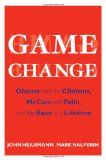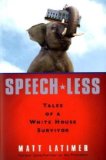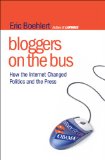







Patrick Kennedy left a note for his father the late Ted Kennedy

So What does this mean for Americans? Well for starters we know this much.
The Patient Protection and Affordable Care Act includes health insurance market reforms that will bring immediate benefits to millions of Americans, including those who currently have coverage. The following benefits will be available in the first year after enactment of the Patient Protection and Affordable Care Act.
Access to Affordable Coverage for the Uninsured with Pre-existing Conditions
The Patient Protection and Affordable Care Act will provide $5 billion in immediate federal support for a new program to provide affordable coverage to uninsured Americans with pre-existing conditions.
Coverage under this program will continue until new Exchanges are operational.
Re-insurance for Retiree Health Benefit Plans. The Patient Protection and Affordable Care Act will create immediate access to re-insurance for employer health plans providing coverage for early retirees. This re-insurance will help protect coverage while reducing premiums for employers and retirees.
Closing the Coverage Gap in the Medicare (Part D) Drug Benefit The Patient Protection and Affordable Care Act will reduce the size of the “donut hole” by raising the ceiling on the initial coverage period by $500 in 2010.
The Patient Protection and Affordable Care Act will also guarantee 50 percent price discounts on brand-name drugs and biologics purchased by low and middle-income beneficiaries in the coverage gap.
Small Business Tax Credits
The Patient Protection and Affordable Care Act will offer tax credits to small businesses to make employee coverage more affordable.
Tax credits of up to 50 percent of premiums will be available to firms that choose to offer coverage.
Extension of Dependent Coverage for Young Adults
The Patient Protection and Affordable Care Act will require insurers to permit children to stay on family policies until age 26.
Free Prevention Benefits
The Patient Protection and Affordable Care Act will require coverage of prevention and wellness benefits and exempt these benefits from deductibles and other cost-sharing requirements in public and private insurance coverage.
No Arbitrary Limits on Coverage
The Patient Protection and Affordable Care Act will prohibit insurers from imposing lifetime limits on benefits and will restrict the use of annual limits.
Protection from Rescissions of Existing Coverage
The Patient Protection and Affordable Care Act will stop insurers from rescinding insurance when claims are filed, except in cases of fraud or intentional misrepresentation of material fact.
Prohibits Discrimination Based on Salary
The Patient Protection and Affordable Care Act will prohibit group health plans from establishing any eligibility rules for health care coverage that have the effect of discriminating in favor of higher wage employees.
Ensuring Value for Premium Payments
The Patient Protection and Affordable Care Act will establish standards for insurance overhead to ensure that premiums are spent on health benefits. The Patient Protection and Affordable Care Act will also require public disclosure of overhead and benefit spending and require premium rebates for insurers that exceed established standards for overhead expenses.
Public Access to Comparable Information on Insurance Options
The Patient Protection and Affordable Care Act will enable creation of a new website to provide information on and facilitate informed consumer choice of insurance options.
Health Insurance Consumer Information. The Patient Protection and Affordable Care Act will provide assistance to States in establishing offices of health insurance consumer assistance or health insurance ombudsman programs to assist individuals with the filing of complaints and appeals, enrollment in a health plan, and, eventually, to assist consumers with resolving problems with tax credit eligibility.
Clear Summaries, Without the Fine Print
The Patient Protection and Affordable Care Act will require insurance companies to outline coverage options using a simple and standard format that enables consumers to make an apples-to-apples comparison when they are choosing their health insurance plan.
Appeals Process
Under The Patient Protection and Affordable Care Act, all health plans will implement an effective appeals process for appeals of coverage determinations and claims.
Administrative Simplification
Under the Patient Protection and Affordable Care Act, all health plans will adopt uniform descriptions of plan benefits and appeals procedures and will use uniform forms and claims processing processes to reduce costs.
To see more of what this bill does………….
The White House offers an interactive guide to the bill and how it will affect you ‘Putting Americans in Control of Their Health Care’.
The New York Times also has a great interactive guideline ‘How the Health Care Overhaul Could Affect You’































































































